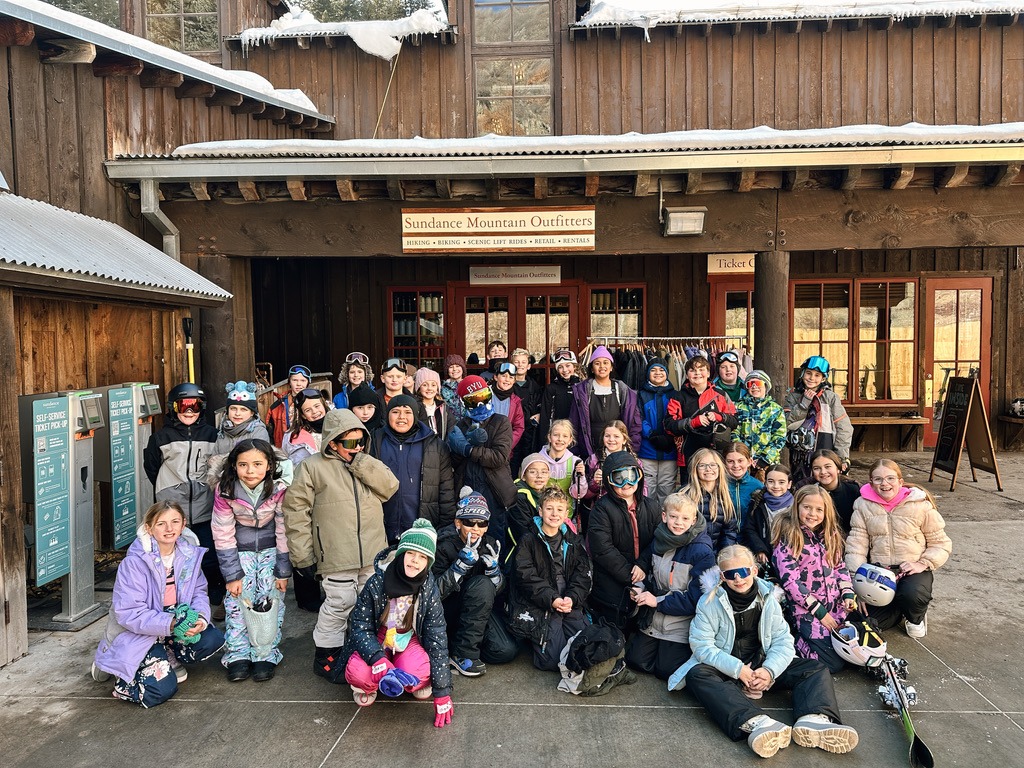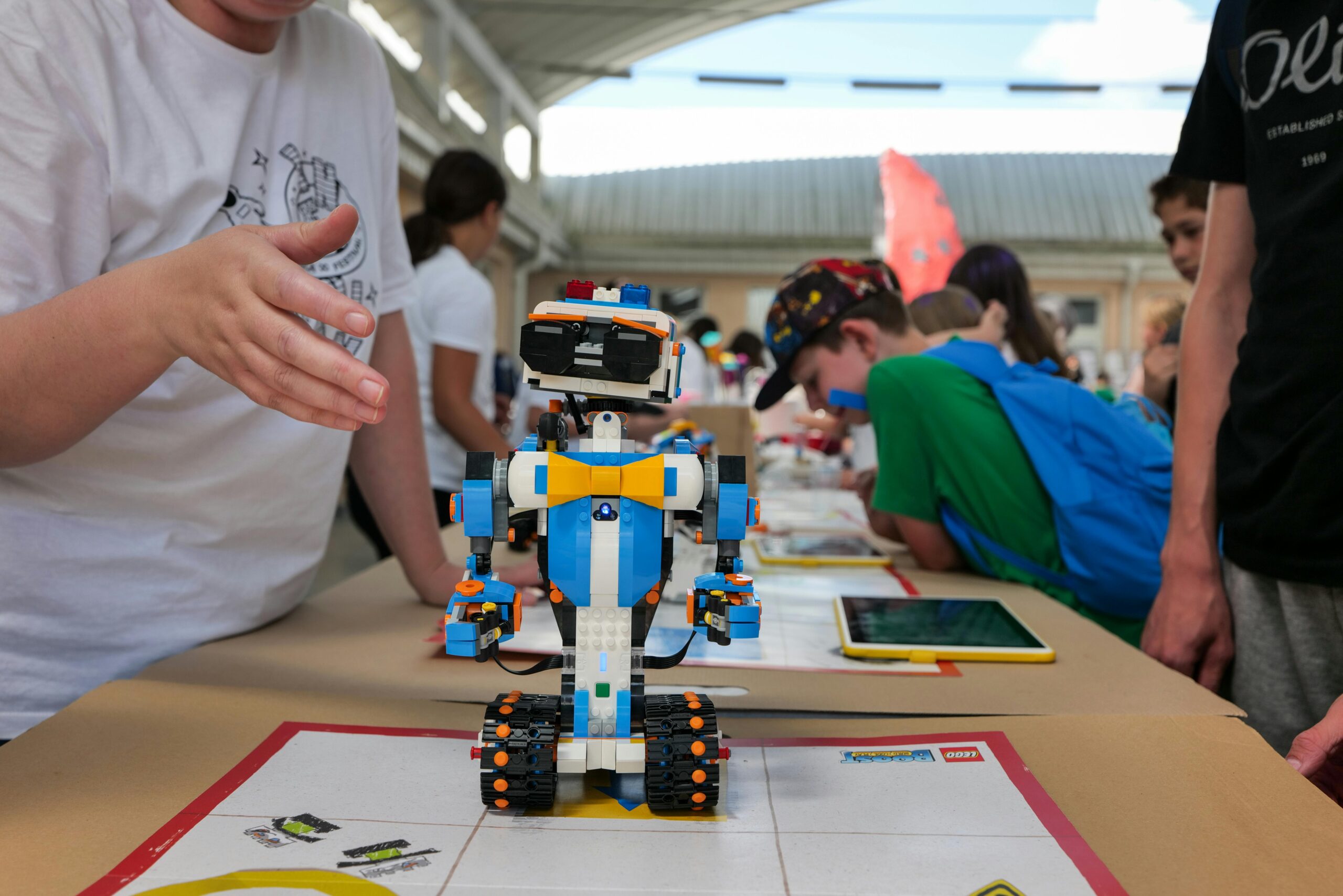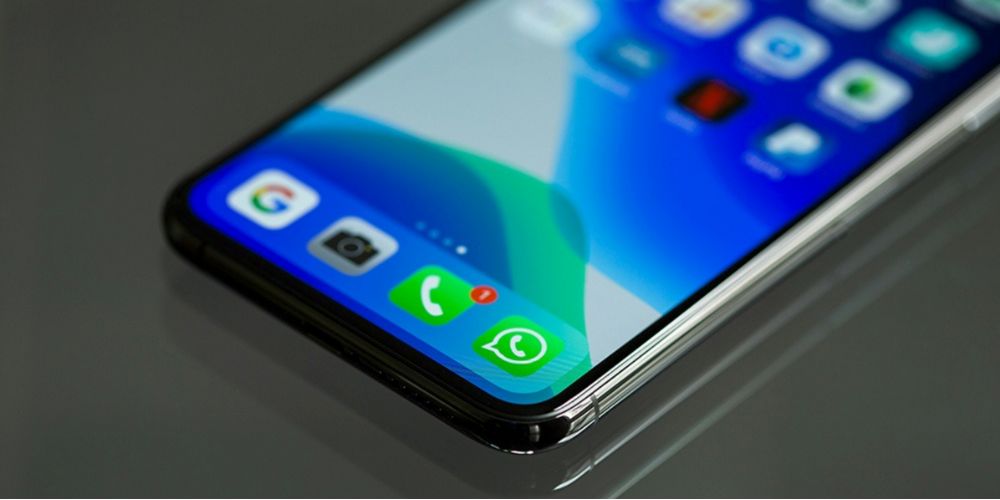Recently, the District highlighted Westridge for how we use STEM hours to increase student learning. Here is what they shared.
Parents want the best for their children, which means learning STEM skills to meet the growing labor demand for well-rounded workers. But, as a teacher, finding time for STEM on your already stacked plate can feel dizzying.
So, how can classrooms and schools across the district implement more deep-learning, STEM-based activities that fit within the year’s scheduled curriculum?
The Innovative Learning Division partnered with Westridge and other participating elementary schools to find an answer.
As part of the new STEM Inclusion Initiative, participating schools dedicate time for students to participate in coding, robotics, and engineering regardless of academic standing or other factors that sometimes limit student access.
Each STEM Friday focuses on a different skill set, with all schools engaging students in coding, robotics, and engineering design. Each school chooses additional skill sets, including deep science dives, educational technology projects, and arts integration.
“This year at Westridge, our 4th -6th-grade students are involved in STEAM Fridays,” says Kim Hawkins, Westridge Principal.
“Each Friday, the students spend time each week focusing on one of the components of STEAM. “
The initiative gradually moves participating schools, such as Westridge, towards a stronger focus on STEM through a one-hour-per-week rotation model– and it’s worked well for Westridge.
“The students have been able to code, work with programmables, fly missions with our Space Lab, and learn enhanced science and art concepts. STEAM has definitely added excitement for students and teachers alike for learning this year.”
During our visit, one classroom’s art lesson required students to learn an art history lesson on medieval bestiaries using a famous art piece, Albrecht Durer’s “The Rhinoceros,” to infer and deduce qualities about medieval science before recreating their bestiary version.
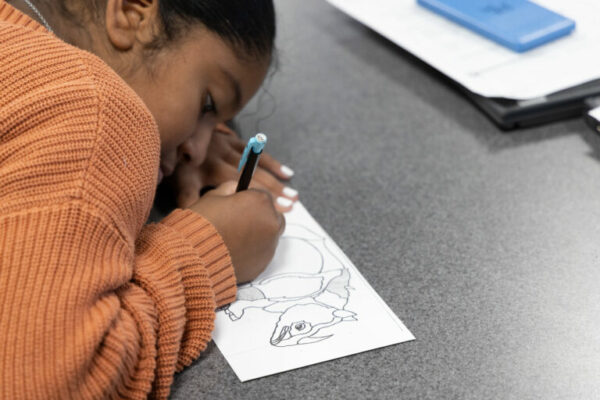
The art created in this lesson will go into a portfolio. At the end of the year, students will select their favorite piece of art from their portfolio and submit it to a schoolwide art show.
In another classroom, students used Ozobots to practice coding, using real-world coding terms, and practiced inference and deduction while troubleshooting problems in their code. From the smiles on students’ faces, an outsider might not assume they were practicing something as stereotypically heady as coding and computer science– yet the lesson engaged the students. Ozobots spun, sped, and twirled along a track according to student coding.
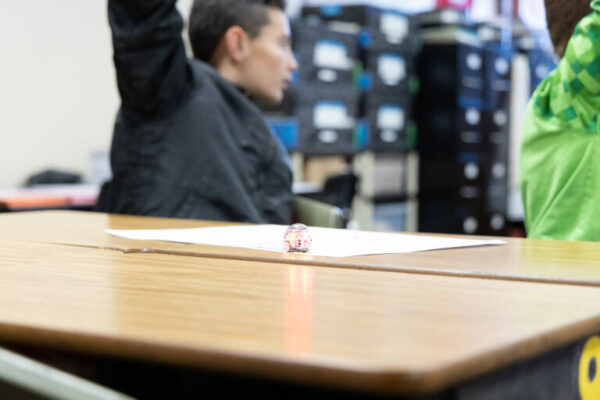
In the two following classrooms, students traversed time and space in a simulated space mission to test previously learned math and science principles, working with their classmates to earn the highest score in a learning-based, immersive video game. Classmates worked together using different social roles to accomplish tasks and finish their mission. After the assignments, teachers received data to track the children’s progress and tailor future lessons.
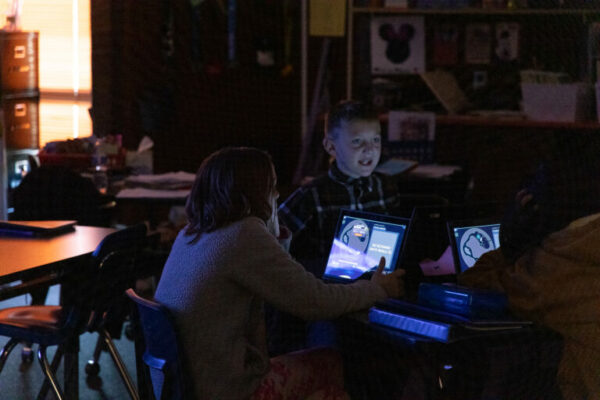
From medieval bestiaries to roaming robots, all fourth-through-sixth grade Westridge students explore the world weekly and build skills through engaging STEAM activities.
We applaud Principal Kim Hawkins, teachers, and the staff of Westridge Elementary for their outstanding efforts in creating a STEM-friendly school.
December 13th, 2024




